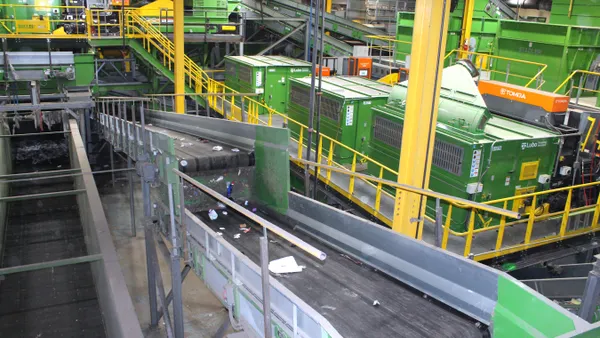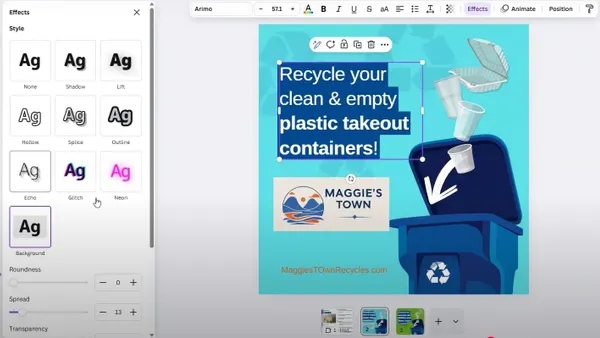Dive Brief:
- The Canadian Council of Ministers of the Environment (CCME) announced on Friday plans for a nationwide "zero-plastic-waste strategy." During CCME's annual meeting, officials from provinces, territories and the federal government agreed to collaborate on a potential action plan over the next year.
- CCME also announced a plan to reduce kilogram per capita waste 30% by 2030 and 50% by 2040. The Canadian government estimates reducing per capita waste by those levels could create 85,000 jobs and $4.2 billion in GDP by 2040. It also estimated this could reduce greenhouse gas emissions by 15 million metric tons.
- “Plastic pollution doesn’t know any borders," said Catherine McKenna, Canada's minister of environment and climate change, in a statement. "We made important progress today with provinces and territories to protect our oceans and reduce plastic pollution in Canada. With the longest coastline in the world and thousands of communities and wildlife that depend on our oceans, lakes and rivers, we need to beat plastic pollution together to ensure a healthy and prosperous future for our kids and grandkids."
Dive Insight:
Earlier this year, McKenna said she wanted to make plastic waste reduction a national priority. At the time, she outlined goals for Canada to implement 100% reusable, compostable or recyclable packaging. The new strategy calls for "ensuring all plastic products and packaging are designed for greater durability, reuse, and recycling throughout the value chain," but doesn't specify a percentage. It also calls for shifting more responsibility to manufacturers for collection and processing infrastructure.
Perhaps the most ambitious element of this discussion is these policies would cover all of Canada, rather than any individual province or community. Other countries such as the United Kingdom have previously announced nationwide plastic waste-reduction goals, but the measures are most frequently seen on local or municipal levels.
Canada has also used its time as G7 President to push the issue of plastic pollution, which resulted in June's "plastics charter" on ocean pollution, signed by Canada, France, Germany, Italy and the UK. Two member nations, Japan and the U.S., did not sign. The charter now has 27 signatories, including many international corporations, and has since spurred a variety of other investment or action pledges.
Canada also has a history of provincial-level action on plastics, with regions such as British Columbia doing substantial work on extended producer responsibility (EPR). The difference between provinces that practice EPR and those that don't were made apparent in early 2018 — areas with EPR programs have fared far better when it comes to dealing with China's plastic scrap import limitations.
Correction: A previous version of this article conflated the plastics plan and waste reduction plan, as well as the nature of the government coalition putting forth these plans.









